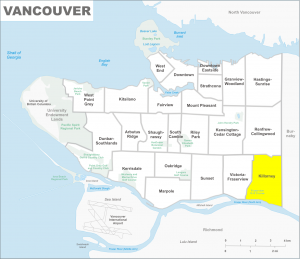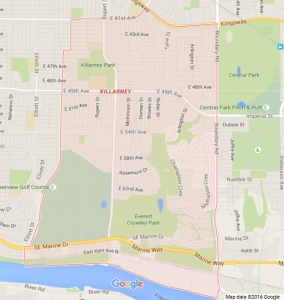Group Values and Goals:
Our group has a strong interest in working with people and gaining practical experience from this community based course. We all value learning the accessibility of food in our local community and want to help everyone gain access to healthy food. A shared interest of the group is how to engage with the community to educate and aid in obtaining the proper nutrition recommended by Health Canada. We also mutually agree that food should be ethically sourced and within budget as having safe, affordable, and nutritious food is a priority for maintaining a healthy population. Some of our values happen to align with the five goals of the City of Vancouver:
- Support food-friendly neighborhoods
- Empower residents to take action
- Improve access to healthy, affordable, culturally diverse food for all residents
- Make food a centerpiece of Vancouver’s green economy
- Advocate for a just and sustainable food system with partners and at all levels of government
(City of Vancouver, 2013)
We hope the alignment of our values with our partner’s value will enable us to have experiences within the food system outside of being a consumer, and to answer the question of how we as LFS undergraduates can impact poverty line food security in the Vancouver mainland region. Although the community kitchen project was not one of our top three choices, we believe that our values and goals will apply nonetheless!
Project Objectives:
Our community project is in partner with the City of Vancouver’s Food Strategy Implementation Team. Their vision is creating a system for producing, processing, distributing, and consuming food that is environmentally, socially, and economically sustainable in the city of Vancouver.
Our objective is to visit non city funded community kitchens in the Killarney area. Using a standardized survey, questionnaire, and observations, we will document the type, condition, and use of publicly accessible kitchens in Killarney in order to inform the City’s plan for community kitchen improvements. We want to focus on the condition of community kitchens, for example, the number and quality of equipment, the programs they organize and the number of people that are involved in these kitchens. We will be using the Asset Based Community Development strategy as our basis in developing our project. ABCD is a strategy for community driven development. The use of the ABCD approach will enhance and build connections with the community kitchens we are surveying by focusing on the community’s capabilities, strengths, and assets (Holmer R, Mercado, A., 2007)
One goal in Greenest City Action 2020 Plan is to increase the city and neighborhood food asset by at least 50% by the year of 2020 (City of Vancouver, 2013). We hope with the data we collect we can suggest and help improve the quality of community kitchens which finally aids in reaching the goal.
[The Killarney Neighborhood]


First Impressions:
All of the community kitchen project teams attended a briefing about our project from our instructor Will Valley and TA Samantha Gambling on January 11th 2016. We liked how our community partner has clear goals and even a survey laid out for us already. We also have great references from community kitchen projects done in term 1 of the year. However, the contacting of community kitchens seems quite challenging. There is not much known about the Killarney neighborhood in terms of food security and community kitchens in comparison to the East Side/Hastings area. One of our group members has had experience with independent contracting in the past and likens his experience of meeting clients with the same challenges of find community kitchens. At first it can be a challenge when there are no contacts made, but as a network is developed it may become easier to locate community kitchens that could be “off the internet grid” and more word of mouth based. Devising a clear plan and finding a suitable approach would probably be one of the biggest struggles for this project. As mentioned in Ernesto Sirolli’s TED talk, it is important to listen to the people we want to help. Since we have a specific survey given to us, we might easily neglect the feelings and needs of the people we will interview. These challenges will arise when trying to facilitate the assessment of these kitchens without appearing to be outsiders critically identifying problems which can isolate and shut down the communication. When using our survey it will be important to create an inclusive and “safe space” for communication to help empower the kitchens to be the community leaders rather than “clients” that we are provided a service for. We must also be aware that each kitchen will be different. We need to remain fluid and impartial to each party rather than the “cookie-cutter” approach that is often used for systematic problems.
Conclusion:
The Killarney community kitchen project objective of implementing ABCD-style research to assess the availability and access of food in the Killarney Neighborhood aligns with group interests. While our group has diverse background in education and career goals, we all have an interest in helping the community food system with nutrition advice, local sustainable foods, and cost-effective resource acquisition.
—————————————————————————————————————–
Works Cited:
City of Vancouver. (2013). What Feeds Us: Vancouver Food Strategy. Retrieved from http://vancouver.ca/files/cov/vancouver-food-strategy-final.PDF. Accessed October 1, 2015.
City of Vancouver. (2015). Greenest city 2020 action plan. Retrieved from http://vancouver.ca/files/cov/greenest-city-2020-action-plan-2015-2020.pdf
Google Maps. (2016). [Killarney, Vancouver, British Columbia]. [Street map]. Retrieved from https://www.google.ca/maps/place/Killarney,+Vancouver,+BC/@49.2179942,-123.0544515,14z/data=!4m2!3m1!1s0x5486742cb810debb:0x175de9e2932ccbda
Holmer, R. and Mercado, A. (2007). Asset-based Community Development in Urban Agriculture: Experiences from the southern Philippines. Urban Agriculture Magazine. The Centres for Resources on Urban Agriculture and Food Security. (18) 29-30, 47. Retrieved from http://www.ruaf.org/sites/default/files/UAM_18.pdf
Ted Talks (2012). Ernesto Sirolli: Want To Help Someone? Shut Up and Listen! Retrieved from: https://www.ted.com/talks/ernesto_sirolli_want_to_help_someone_shut_up_and_listen?language=en